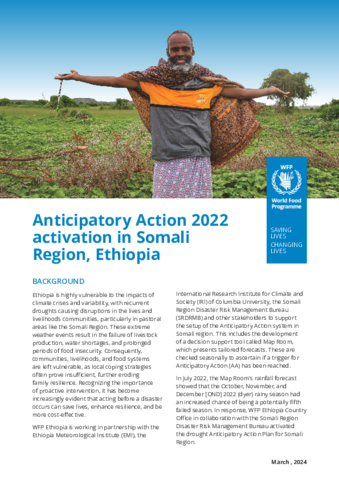
Ahead of the October-December 2022 rainy season, forecasts indicated that there was an increased chance of a failed rainy season in Ethiopia’s Somali region. WFP and its partners implemented three anticipatory actions, anticipatory cash, early warning information and rangeland enclosure and fodder production.
Ethiopia is highly vulnerable to the impacts of climate crises and variability. Recurrent droughts are one of the major causes of livelihood disruptions in the country, especially in pastoral areas like the Somali Region, where extreme weather events lead to failure of livestock production, water shortages and prolonged periods of food insecurity. To mitigate the impacts of predictable hazards like droughts, the UN World Food Programme (WFP) is supporting the government in the Somali region of Ethiopia to develop skillful forecasts that trigger anticipatory action plans (AAP) before a drought.
Franciskar Rionokou, Abnet Mulugeta, 2023 Anticipatory Action 2022 activation in Somali region, Ethiopia
